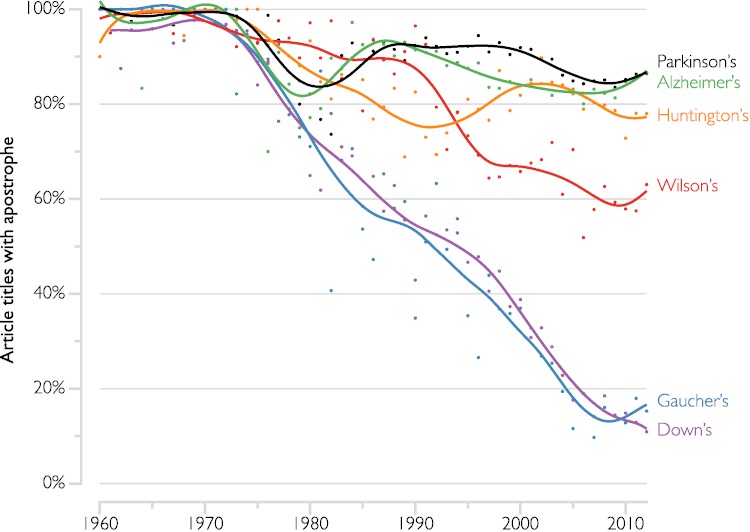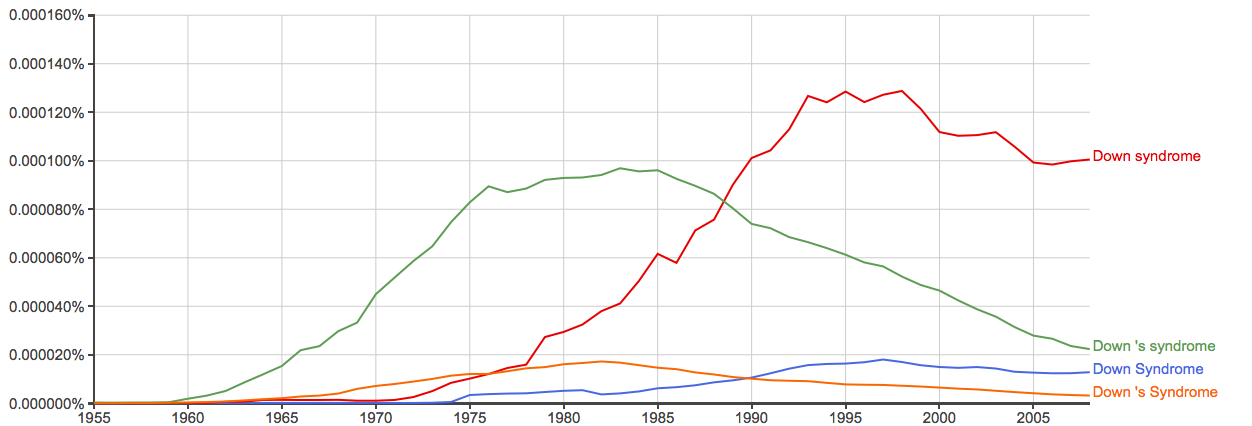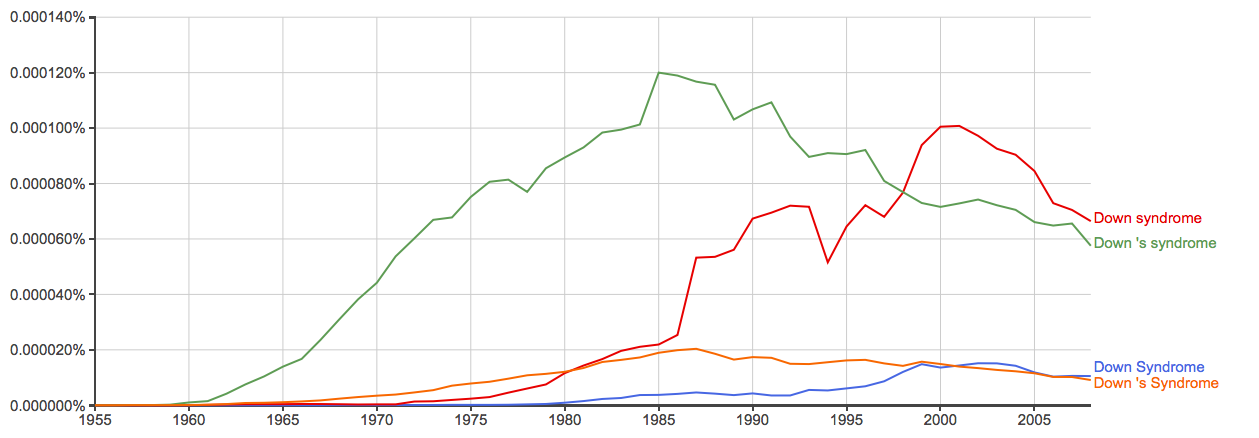Some relevant articles: "Whose name is it anyway? Varying patterns of possessive usage in eponymous neurodegenerative diseases", by Michael R. MacAskill and Tim J. Anderson (2013), and "The synthetic genitive in medical eponyms: Is it doomed to extinction?", by John H. Dirckx (2001).
The abstract to the MacAskill and Anderson article says
The PubMed database was queried for the percentage of titles published each year from 1960–2012 which contained the possessive form of Parkinson’s (PD), Alzheimer’s (AD), Huntington’s (HD), Wilson’s (WD), and Gaucher’s (GD) diseases (e.g. Huntington’s disease or chorea vs Huntington disease or chorea). Down syndrome (DS), well known for its changes in terminology, was used as a reference. The possessive form was nearly universal in all conditions from 1960 until the early 1970s. In both DS and GD it then declined at an approximately constant rate of 2 percentage points per year to drop below 15%. The possessive forms of both PD and AD began to decline at the same time but stabilised and have since remained above 80%, with a similar but more volatile pattern in HD. WD, meanwhile, is intermediate between the DS/GD and PD/AD/HD patterns, with a slower decline to its current value of approximately 60%. Declining possessive form usage in GD and DS papers has been remarkably uniform over time and has nearly reached completion. PD and AD appear stable in remaining predominantly possessive.
Here is Figure 1, which presents the relevant results in graphical form:

The results summarized in this figure don't differentiate between different varieties of English. (Although PubMed is "developed and maintained by the National Center for Biotechnology Information (NCBI), at the U.S. National Library of Medicine (NLM), located at the National Institutes of Health", the database contains literature that was published in the UK as well as literature that was published in the US.) But there do seem to be notable differences in usage between American English and British English in this area. MacAskill and Anderson analyzed the use of "Parkinson's disease" vs. "Parkinson disease" in UK-based vs. US-based journals general journals and found evidence that the rise of the latter form in US-based journals was influenced by changing editorial preferences. It seems probable that the rise of "Down syndrome" had a similar cause.
A quick look at "Down's syndrome" vs. "Down syndrome" in the Google Ngram Viewer does support the point that has been brought up in comments about the ratio of "Down syndrome" to "Down's syndrome" being higher in the US than in the UK. However, both forms do seem to exist in both varieties of English.
American English:
 British English:
British English:

Possible phonetic pressures for the change?
John Lawler suggested in a comment beneath the question that certain phonetic features of "Down's syndrome" may have contributed to its becoming less preferred relative to "Down syndrome":
Down's Syndrome contains a /zs/ sequence from the 's S segment. In normal speech, such a sequence will delete the /z/ naturally, since it's simply a voiced version of /s/ [...] spelling [...] lags behind pronunciation, but it's catching up
This seems somewhat plausible, but the initial dominance of the spelling with 's, and the data in the MacAskill and Anderson article showing a parallel decline in the frequency of Gaucher's disease vs. Gaucher disease, indicate that a phonetic explanation is probably not the whole story even if it may have some applicability. While it seems hard to estimate exactly how much of a role phonetics may have played in the development of the spelling Down syndrome vs. other factors, I'd guess that other factors were actually more important.
Dirckx makes a similar suggestion on p. 19, saying
[the form without the suffix -'(s)] is often chosen for proper names ending in s (Colles fracture, Graves disease) because, as mentioned earlier, many speakers pronounce Colles’s and Graves’s exactly like the uninflected (nominative) forms of the nouns. To a lesser degree, the form may be preferred before words beginning with an s or z sound, since the inflectional s of Marfan’s syndrome and Looser’s zones tends to be lost in speech.



